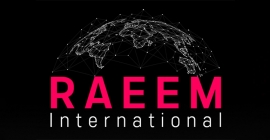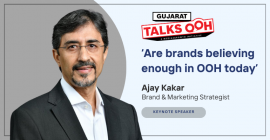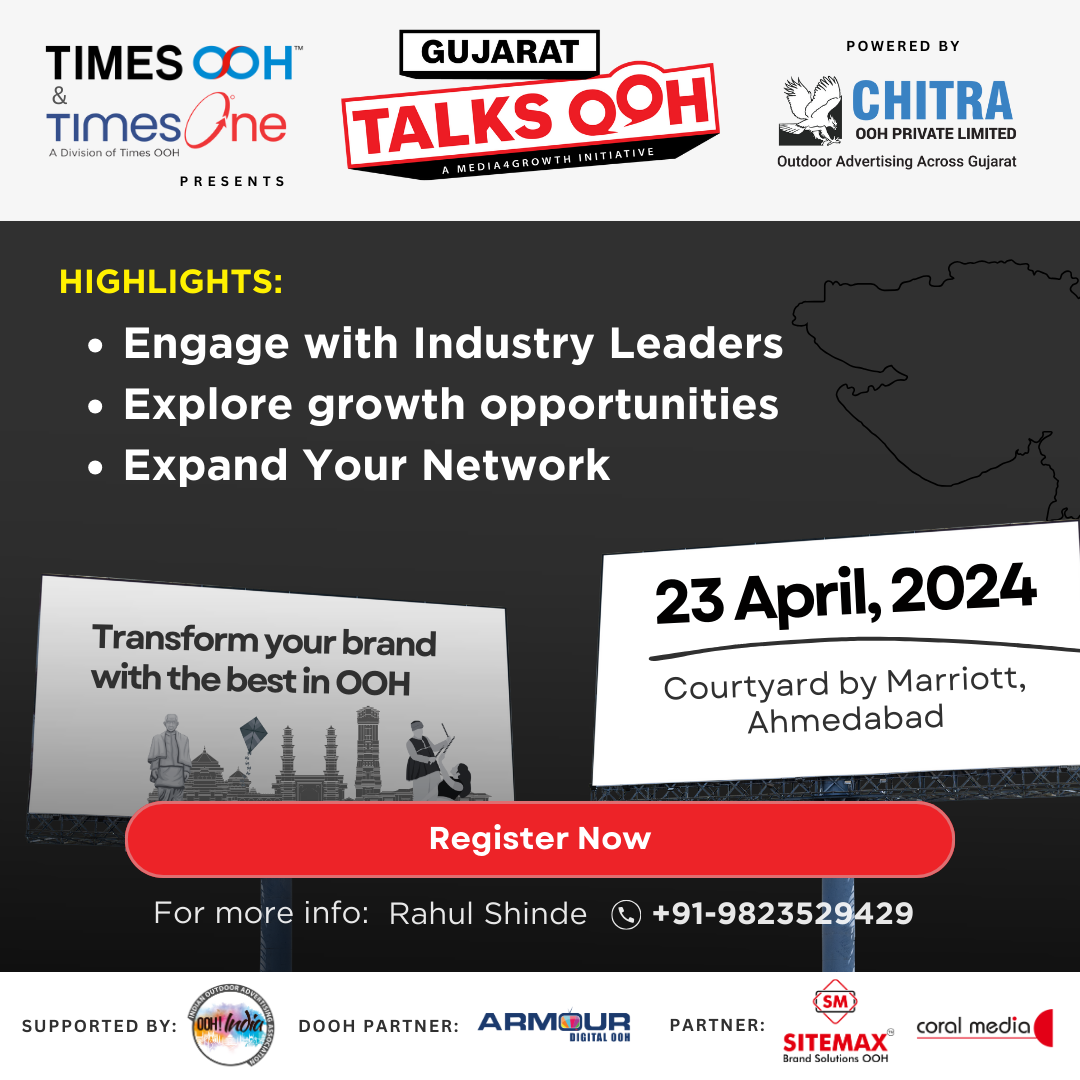Specialist agencies gearing up to tackle new business challenges across India markets
By M4G Bureau - May 18, 2020
OOH leaders representing India’s top specialist agencies weigh in on ‘Tackling the challenges of rebuilding business in the face of the Covid-19 crisis’
As India enters Lockdown 4.0 to fight the Covid-19 pandemic, industries across the spectrum are exploring new ways to keep the business operations going. With calibrated easing of the restrictions imposed by the Central and state governments on people movement, and functioning of offices and commercial establishments, avenues are opening up for businesses to claw back to normality.
The Indian OOH industry is ardently waiting for the audiences to be back on the streets in large numbers, that would encourage many of the brands to once again begin their advertising campaigns. However, the OOH firms have to be reorganising themselves to come to terms with the New Normal.
Against this backdrop, heads of India’s top specialist agencies – Rachana Lokhande, Co-CEO, Kinetic India; Charanjeet Arora, Co-CEO, Kinetic India; Fabian Cowan, President, Posterscope India; Jayesh Yagnik, CEO, MOMS Outdoor Media Solutions; Atul Shrivastava, Group CEO, Laqshya Media Group; Mandeep Malhotra, Co-Founder & CEO, The Social Street; and Dipankar Sanyal, CEO, Platinum Outdoor – shared their perspectives on the theme of ‘Tackling the challenges of rebuilding business in the face of the Covid-19 crisis’ in an online Roundtable Discussion hosted and moderated by Rajiv Raghunath, Managing Editor, Media4Growth and Outdoor Asia.
The Roundtable also set in motion the ‘OOH! SURE’ video series launched by Media4Growth.
Getting the teams up to speed
Responding to a question on how the teams are geared to cope with new working patterns, Rachana Lokhande categorically stated that the early ways of working are near history. “We have to be accepting the fact that part of our workforce will always be working from home,” she said, while adding that with everyone connected with everyone, working from home may not be such a big challenge for the teams. There is also the opportunity for companies to cut down infrastructure costs in these circumstances.
Fabian Cowan was of the view that smart thinking organisations would opt for a combination of people working from home and office. “That would be an efficient system from a cost perspective and from the standpoint of managing the skills,” he said. However, he added that a greater number of people reporting for work at the offices will infuse new confidence in all partner organisations that business is getting back to normality.
Jayesh Yagnik observed that people are getting used to the “New Normal”, evidenced by the fact that within MOMS business presentations have been researched upon, prepared and presented in good numbers over the last two months when the national lockdowns were enforced.
In fact, working from home has brought about greater flexibility in the working styles, asserted Atul Shrivastava, while pointing out that even client engagements are often taking place outside regular hours and the Laqshya Media Group teams have adapted to the new ways of working. Also, in the inter-connected environment, multiple teams from different locations are able to engage with clients simultaneously without having to travel to any single location.
Charanjeet Arora drew the panel’s attention to the fact that Kinetic Worldwide had been following work from home norms since 2018, whereby the internal HR mandated working from home for 2 days. “Today, we are spending more quality time with our teams. All our projects, P&Ls and the like are discussed on video calls,” he said, while emphatically stating that “this new norm is going to further brighten our lives”.
The lockdown and work from home also gave the employees of the agencies the opportunity to discover and pursue some of their own hobbies and interests. Mandeep Malhotra, who strongly advocated such pursuits in the current situation, said, “This was indeed an opportunity to relive what we had missed out on. To find that inner MF Hussein, perhaps”.
Dipankar Sanyal said the emerging working styles would not be a major disruption for the young employees. “We are moving away from silos to a more collaborative way of working across the departments. So, we will be bringing in people who are less ‘outdoorsy’ and more with the understanding of digital, technologies, etc.”
Skill sets for the future
Reflecting on the need for re-skilling and upskilling of team members, Dipankar said, “In the last 25-30 days I have myself completed three courses. The opportunity to learn has increased exponentially. During this lockdown if you have not learnt anything, you have wasted an opportunity”.
Rachana said the existing skill sets will not become redundant in the foreseeable future, but upskilling is the need of the hour at every level in the organisation. “Now, courses are being offered online without any fee or at a marginal fee. People who have not upskilled themselves are making themselves redundant,” she said.
Fabian explained that when the national lockdown was enforced, Posterscope drew down a plan for every department to keep busy and undertake upskilling of the employees. “I see a certain eagerness now among the teams to perform the tasks for which they have been upskilled.”
Providing a broader perspective to the learning process, Charanjeet said it is imperative for the agencies to impress upon the media partners to invest in research. A measurable medium is central to OOH’s growth prospects, he averred.
The Social Street introduced a variety of training and knowledge sharing sessions for its teams in this lockdown period. “For collective learning, I have been hosting a web series called ‘The New Normal’ on various business streams. We also do an inhouse session called ‘The Lockdown Series’ where we call senior people from the brand side to share their experiences,” he explained. The teams are also encouraged to make internal presentations on themes like social media, data analytics, etc. on the lines of TEDx. Other similar initiatives are the ‘PechaKucha’ and ‘Bheja Social Fry’ sessions where the employees get to know each other better.
Laqshya Media Group organises periodic training programmes for its people. “In the last one month, we got done training and development programmes that would have usually taken three months,” said Atul.
When asked what would be the takeaways for the media owning firms from the people development initiatives taken by the specialist agencies, Jayesh said that the media owning firms would do well to get their people to focus upon outcome-based solutions and not conventional selling styles alone.
Adjusting to new media consumption patterns
Responding to the question on how changing media consumption patterns would impact OOH business, Rachana pointed out that digital media growth will stay consistent, while globally TV, radio and print are in decline. OOH business has declined in the current situation, but she expects a turnaround when more people step out of their homes.
“What is to be seen is how OOH combines with mobile, for instance” she said, while adding that OOH budgets would likely take a hit. There are FMCG brands that are currently focusing upon delivery of essentials and not so much on other products. “As the priorities change, their choice of stack of media will change.”
Mandeep was of the view that OOH has the innate capability to quickly adjust to new business conditions. However, the budgets available for OOH would be severely curtailed in in the coming days.
Atul pointed out that there is a gradual demand for roadside media building up.
Fabian highlighted the need for OOH assets to present themselves better.
Jayesh said that he anticipates a sizeable demand for OOH building up by September-October, ahead of the Diwali festival in November.
On a larger plane, Charanjeet said that digital is the future of OOH as it guarantees greater transparency and speed of campaign execution.
Dipankar reiterated the imperative for Indian OOH to establish robust audience measurement metrics.
Jobs situation
The OOH leaders said in the unison that they are not planning for any job cuts, though in some organisations salary levels have been reworked.

Stay on top of OOH media trends




_140_270.png)






